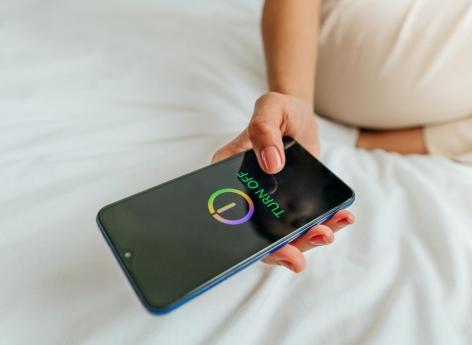The earlier a child uses a smartphone or tablet, the greater the risk of having psychological problems in early adulthood.

- Children who had a phone or tablet at age 6 are more likely to have psychological difficulties than those who had it at age 18.
- They are more likely to experience suicidal thoughts, feelings of aggression towards others, and feelings of detachment from reality.
- On the contrary, people who got their phone later showed greater self-confidence and a better ability to establish positive relationships with others.
Generation Z, or 18-24 year olds, is the first generation to have grown up surrounded by digital devices like smartphones and tablets. If these new technologies have no secrets for them, it seems that they can have a negative impact on their mental health.
Mental and digital health: women are more affected
The neurological and cognitive data platform Sapien Labs studied the profiles of 27,969 young people aged 18 and 24 interviewed between January and April 2023. Its experts noticed that the younger the volunteers received their first phone, the more they were likely to experience suicidal thoughts, feelings of aggression towards others, and feelings of detachment from reality once they reached adulthood.
“These trends were stronger in women than in men and consistent across all regions of the world sampled, including English-speaking countries, Western Europe, Latin America, South Asia and Asia. Africa”specify the authors of the report in a Press release.
For example, the percentage of women with mental health problems was 74% among those who had a smartphone or tablet at age 6, while it was 46% among those who had only used it from age 18. years. For men, the rate goes from 42% for those equipped before their 10th birthday to 36% for those who had it at the age of majority.
People who owned a phone at age 6 had more suicidal thoughts in adulthood (score of 5.8 for women and 4.1 for men) than those who only had access to it late adolescence (score of 3.6 for women and 3.2 for men).

Smartphone: better self-confidence among those who have it at 18
Having a digital device late doesn’t just seem to ward off mental health issues and suicidal thoughts. The authors of report published on May 14, 2023 note that “The later in age these young adults first received a phone or tablet, the better their adult mental well-being. In particular, the most improved dimension of mental well-being was “Social Self”, measuring various elements such as self-confidence and the ability to relate positively to others”.
Chief Scientist Tara Thiagarajan of Sapien Labs adds that the results of her study suggest that there is “long-term improvements in mental well-being for each ‘year delay’ in obtaining a smartphone during childhood”. For her, it is necessary to continue work on the link between telephones and mental health in order to put in place “effective policies and interventions that can support healthy mental development in the digital age to reverse the downward trends we have observed”.
















